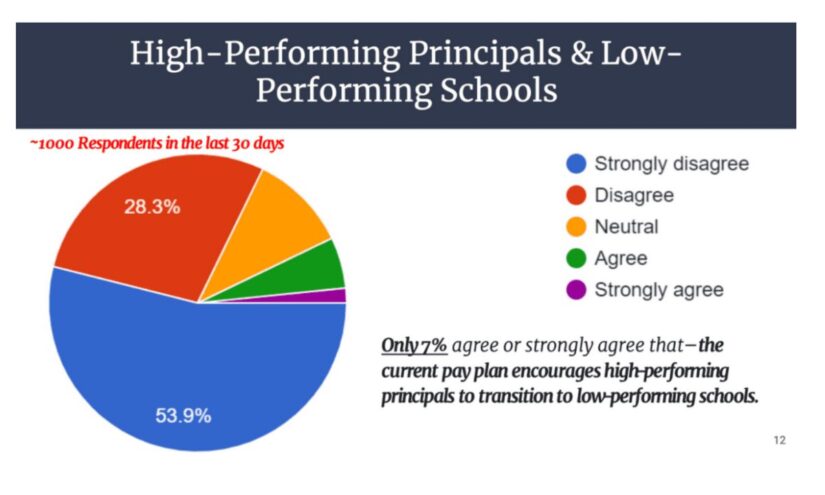During this summer, a team of students from MIT embarked on a journey to the sou …
North Carolina Principals Advocate for Comprehensive Pay Scale beyond School Performance and Size
Carlos Changemaker

During a House education reform meeting on Monday, a pair of North Carolina’s 2023 Regional Principals of the Year urged lawmakers to reevaluate the state’s principal compensation plan. The current plan, as per two representatives from the North Carolina Principals and Assistant Principals Association (NCPAPA), heavily links pay to test scores, deterring some principals from working in underperforming or high-poverty schools.
The state’s principal salary schedule currently hinges on Average Daily Membership (ADM) and school growth. In 2018, the state revised the principal pay scale to raise salaries. In their presentation to lawmakers, Dr. John Lassiter and Ashley Faulkenberry emphasized that the requested revisions by NCPAPA expand on this scale.
“The focus isn’t on significant pay increases but on refining the compensation model for greater pay stability and retaining exceptional principals in their schools longer,” stated the presentation. Although the current plan was a step in the right direction, it had unintended consequences, their presentation highlighted.
The proposed plan by NCPAPA aims to introduce a retention bonus and consider factors such as the number of multilingual students and homeless students in a school. Furthermore, it will evaluate school size and performance, aiming to provide more stability in pay for principals.
“We acknowledge the urgency to support North Carolina schools and ensure robust school leadership, given its significant impact on overall school success,” stated Lassiter, the principal of Hertford Grammar School. The proposal seeks to incorporate complexity factors in principal compensation to reflect the challenges principals face uniquely.
One significant concern raised in the presentation was the volatility in pay driven by factors beyond the principal’s control. It also highlighted the necessity of acknowledging school complexity and incentivizing assistant principals to advance to principal roles.
The current principal pay plan, depicted below, will undergo revisions aimed at addressing shortcomings brought up in the presentation to lawmakers.
In terms of performance pay, the proposed adjustments include reducing the EVAAS growth targets incentives from 10% and 20% to 5% and 10%, respectively. The saved funds from these adjustments will be redirected toward bolstering the base principal pay to ensure stability while maintaining the plan’s structure.
Encouragingly, the proposal also underscores the importance of principal retention. Notably, principals play a critical role in shaping schools, impacting aspects like student achievement, teacher retention, and reduced absenteeism.
To boost principal retention, NCPAPA suggests implementing retention pay bonuses based on years of service as a principal, emphasizing the complexity model for determining pay tiers. This model would consider factors beyond school size to incentivize principals to remain in high-poverty schools.
Overall, the proposal strives to establish a robust compensation progression in North Carolina schools to counter the declining interest in principalship, ensuring that experienced leaders are adequately recognized and compensated.
Lawmakers are now being called upon to alter the principal pay plan in 2024 to improve recruitment, enhance stability, account for school complexity factors, and value experienced leadership. The importance of retaining exceptional principals in their schools has never been clearer.


